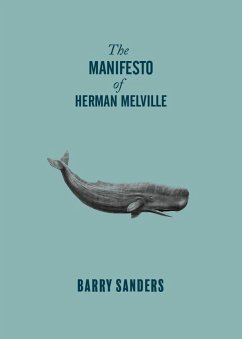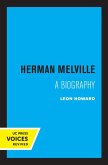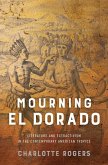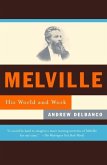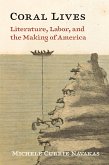In this iconoclastic and sure to be contentious re-casting by a renowned critic, the great American novel Moby Dick is presented as a work that has been widely misread, an error that continues to this day. According to Barry Sanders, Herman Melville's best- known work is not a novel, does not pretend to be a novel, and was not intended by its author to be read as a novel. Moby Dick is this country's first manifesto, a tocsin sounded to warn us about the encroaching end of nature.
The Manifesto of Herman Melville traces the evolution of Moby Dickfrom its awful, initial reception, very rapidly passing out of print, to its remarkable revival to become lauded as one of America's great literary classics. That turnaround happened in the early decades of the 20th century and was, in great part, the result of the new and radical aesthetic movements such as surrealism, dadaism, and cubism that allowed for a radical reading of the book. The novel's new standing as one of the keystones of the American cannon disguises its deeper meaning as an alarm bell, an obscuring which Barry Sanders, in a critical assessment that is as persuasive as it is provocative, seeks to clear away.
Sanders argues that Moby Dick needs to be recognized as Melville's manifesto: a bold statement warning of the destruction of the natural world made most evident in the book's central metaphor the relentless pursuit to kill the whale, the first sentient being in Genesis and one of the most startling mammalspossessed of hair and scales, a tail and breastsand the largest of the creatures on earth, weighing up to 400,000 pounds.
Whalers in Melville's day hunted down and killed these extraordinary behemoths of nature, for their oil, sold to people for cooking and to light their homes. Today the pursuit for energy has shifted dramatically, from sea to land, but the prize remains the same: energy producing fuel for which entrepreneurs and adventurers are prepared to kill off all of nature.
The Manifesto of Herman Melville traces the evolution of Moby Dickfrom its awful, initial reception, very rapidly passing out of print, to its remarkable revival to become lauded as one of America's great literary classics. That turnaround happened in the early decades of the 20th century and was, in great part, the result of the new and radical aesthetic movements such as surrealism, dadaism, and cubism that allowed for a radical reading of the book. The novel's new standing as one of the keystones of the American cannon disguises its deeper meaning as an alarm bell, an obscuring which Barry Sanders, in a critical assessment that is as persuasive as it is provocative, seeks to clear away.
Sanders argues that Moby Dick needs to be recognized as Melville's manifesto: a bold statement warning of the destruction of the natural world made most evident in the book's central metaphor the relentless pursuit to kill the whale, the first sentient being in Genesis and one of the most startling mammalspossessed of hair and scales, a tail and breastsand the largest of the creatures on earth, weighing up to 400,000 pounds.
Whalers in Melville's day hunted down and killed these extraordinary behemoths of nature, for their oil, sold to people for cooking and to light their homes. Today the pursuit for energy has shifted dramatically, from sea to land, but the prize remains the same: energy producing fuel for which entrepreneurs and adventurers are prepared to kill off all of nature.
Dieser Download kann aus rechtlichen Gründen nur mit Rechnungsadresse in A, D ausgeliefert werden.

